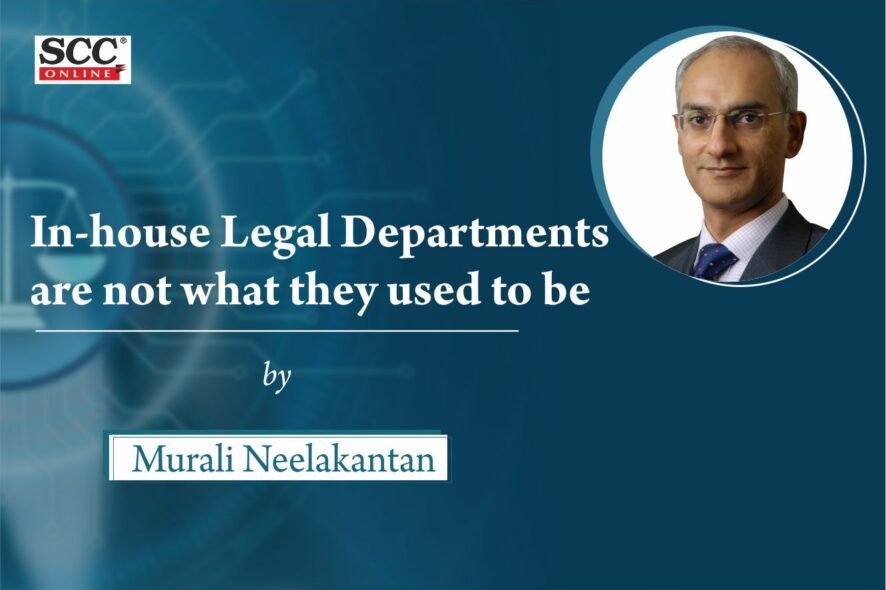The Legal Department of virtually every company has undergone such a monumental change in this millennium that very few can remember it as a few unremarkable lawyers reporting to middle managers whose expertise was finance, administration or even HR. In-house legal teams today are expected to add value to the business – be “business partners”, a long way from when they were merely a conduit between business and outside counsel. As business partners, they are now expected to know the business and help to spot opportunities, actively help with risk management, ensure compliance with law, regulations and policies while all the time supporting business in achieving its multiple objectives.
To be able to meet this expectation, Legal Departments have had to formulate a strategy and hire top talent to execute it, something that did not happen in the last millennium when they were merely cost centres. From “legal managers” to general counsel (GC) has been more than just a change in title. There is now a clear acknowledgement that a GC is an essential element of the company leadership, alongside the Chief Executive Officer (CEO) and Chief Financial Officer (CFO). The global trend of the GC being an integral part of the office of the CEO or the Chairman’s office has reached India.
Modern in-house legal teams in India have industry expertise and are best placed to deal with all “business as usual” matters and only use external counsel for more routine and ad hoc matters like litigation, corporate transactions, financing, capital markets, etc. – a clear strategic break from the past. As a result, or perhaps it is the cause for client behaviour, very few Indian law firms have deep industry knowledge and have remained generalists. Nevertheless, Indian law firms have, as a result of the sophistication of their clients fallen into skill specialisations – capital markets, litigation, intellectual property right (IPR), tax, etc., but very few have expertise across skills in many of the key sectors.
On the other hand, in-house legal teams are constantly innovating in their constant endeavour to be business partners. Many have been adopting new technology for contract management and compliance. Their knowledge of global practices, and laws and regulations across the world is often much better than that of Indian law firms. In-house legal teams now have a strategy based on high quality people, deep industry knowledge and technology which is well conceived, and executed with same thoroughness as their colleagues execute business strategies but, without any historical baggage from the previous millennium. There may be a lesson there for Indian law firms on what they need to do to bring their business model out of the noughties.
† Murali Neelakantan is currently Principal lawyer at Amicus. He is a dual qualified lawyer (India and UK) and among other positions, he was formerly a partner at an international law firm in London, Cipla’s first global general counsel, and Executive Director and Global General Counsel of Glenmark Pharmaceuticals.







